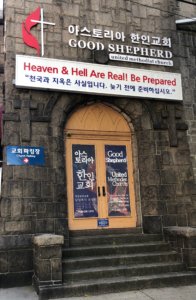Read More]]>
In Portugal, European Portuguese is considered the “standard” Portuguese. It got its name “European Portuguese” so it can be distinct from Brazilian Portuguese and not be called “Portuguese Portuguese.” In Portugal, 222,708,500 speak European Portuguese as a first language. Within Portugal, 13,803,500 speak European Portuguese as a second language. The use of European Portuguese is very widespread within Portugal.
There are different language attitudes when it comes to European Portuguese. This is the “proper” way of speaking. This can similarly be compared to how Americans say “Standard English” is the proper way of speaking. It has all the correct vocabulary, grammar and accents. European Portuguese was predominately used as a written language, which is why it was used as the standard. It is also considered an elegant language but it is mainly favored for its history and importance in literature. Socially, European Portuguese is seen as the “correct” language and it’s the langue that is taught in schools. Because of this, a person was seen as more educated if they knew it.
Brazilian Portuguese is mainly spoken in Brazil, hence its name. In Brazil, the population is 194,000,000 and out of that, 71% speaks Brazilian Portuguese. Within Brazil, the language is very widespread also. Brazilian Portuguese is said to have a long history of being spoken and not written. At the time when Brazil was under the rule of the Portuguese government, in the 16th century, there were slaves, of which whom were illiterate, from African descent who had their own language and they slowly created what is considered today, Brazilian Portuguese. It was their Creole language mixed with European Portuguese that produced “Brazilian Portuguese.”
In one of the studies, Sónia Maria Nunes Reis (2011), participants were asked what were their attitudes towards Brazilian Portuguese and European Portuguese, Brazilian Portuguese was favored based on its sounds, its expressiveness and its musicality. Brazilian Portuguese has been known as a pleasant language to listen to. It is also considered very romantic and understandable. Another attitude towards Brazilian Portuguese, was that it was considered to be spoken by lower class Brazilians with little education. In spite of some negative implications like that, Brazilian Portuguese is used by 80% of Portuguese speakers. It is more fluent in conversation.
People, no matter what part of the world, are very judgmental. The first thing they’ll judge you on is your looks and then by the way you speak. Depending on how a person speaks, they’ll be judged on many things like if they’re educated, their social class and where they come from. For example, two friends talking will use a more relaxed, slang way of speaking and not be completely “proper.” But those same two friends can also speak more “educated” in a work environment or with their boss. People shouldn’t judge a person’s language so quickly and be more opened minded because language is a way for person to express himself or herself. Language can tell you a lot about a person, but it doesn’t define them.
Questions:
- Do I need to add anything?
- Is my writing clear and understandable?
Bugel, T., Santos, H., & Berger, I. (2014). Attitudes toward Brazilian Portuguese among Brazilian learners of foreign languages in monolingual and multilingual contexts. Revista Internacional De Lingüística Iberoamericana, 12(1 (23)), 41-59.
Reis, Sonia M.N. (2011). Portuguese as a minority language. Attitudes of undergraduate students studying Portuguese literature. Researching Bias. 61-64.
]]>Read More]]>
The linguistic landscape I chose was of the entrance of a church. This church is located in Astoria, Queens on Crescent Street. There are many bilingual signs that surround the doors of the church. There are two banners that take up the glass panels on the doors in big white writing saying “Good Shepherd” “United Methodist Church” and on the bottom, the name of the Reverend, the times and the phone number. On the left side of the panel, all of the writing is in Korean. On the right side of the panel, it is translated all into English. On the top of the double doors are two huge signs. One sign states again “Good Shepherd” in bold white font with the Korean on top and the English on the bottom. The other sign is in a framed white background with the words “Heaven & Hell Are Real! Be Prepared” in red and the Korean translation beneath it in blue. On the side of the doors there is a little sign in blue indicating where the church parking is, in both English and Korean.
This linguistic landscape is showing the presence of a religious community. This church shows that there are people in the community that share the same religious background within the same general location. Not only does the church inform us about the community but the languages displayed outside on the signs also inform us. The signs show us that there is a large enough group of Korean speakers in the community for them to have a place of worship in the comfort of their own language. It also shows us that the Korean speaking and the English speaking communities come together in this place to express their religious practices.
In this area of the neighborhood there are mostly tall apartment building around it. Across the street there is another church. There is also a hospital diagonally across from the “Good Shepherd” church. The neighborhood is not predominantly Korean so I found it interesting to learn that the language was Korean.

Questions:
1) Did i provide a good visual?
2) What can I expand on further?
]]>
This is a church that is down the block from my house. From my observations it looks like two languages, English and another language. The signs are all different, parking, the name of the church, mass times and other little signs.
]]>Read More]]>
I was raised bilingually because my grandparents only speak Spanish and the only way I could communicate with them was to learn Spanish. I learned the traditional Spanish but I also picked up on the “Cuban slang” words as well. Learning Spanish at such a young age I was able to become more confident the older I got when speaking it. When speaking to other Spanish speakers in my dialect, not all of them always understand the words that are specific to my family’s Spanish. In my house we more slang words and more “relaxed” Spanish whereas if I am speaking to my grandmother’s friends, for example, I speak very proper Spanish.
As a woman who appears as a Caucasian woman, I have encountered times where people are taken back by the fact I speak Spanish. They automatically judge that I don’t speak Spanish because I don’t meet the stereotypical qualifications of a Spanish woman. For instance, when I’m with friend who carries the traits of a stereotypical Spanish woman and a Spanish speaker is in need of assistance, they’re more inclined to ask her before asking me. Being so used to speaking Spanish, I get taken back when others don’t see me as Hispanic just based off my looks.
We are so conditioned to look at life through a stereotyped lens that we use their appearance and the way people speak to affect our perception. People will usually view others as lower class if they speak with profanity and/or slang, when in all reality it could just be, what they see as, a dialect of their language. People like to stay with what they’re comfortable with and they tend to judge people who are not of their norm. Being a multi-language speaker, I feel that people should be more open-minded with language. Language is used however people like and want to express themselves.
- Did I stay on topic?
- Should I expand on anything?
Read More]]>
Myth: Raising children bilingually is a mistake because they will get confused and never become truly proficient in either language
I do not fully agree with this language myth. I do not think that raising children bilingually is a mistake at all. I believe that a child should be taught as many languages as one pleases. I am a product child of being raised bilingually. My first language is English and my second language is Spanish. I have experienced confusion myself when I comes to both languages. There are times that I have forgotten how to say a word in English but I know the Spanish translation, and vice versa. Also, anytime I pray, I automatically start praying in Spanish. I think that it would be harder for someone to become proficient in multiple languages than just one, but it is not impossible. I believe the more languages you know, the better.
]]>